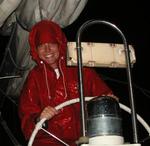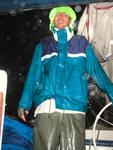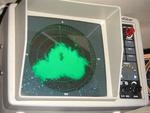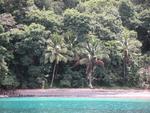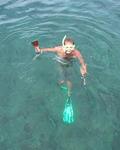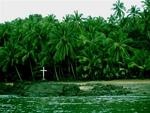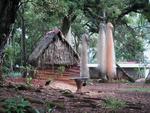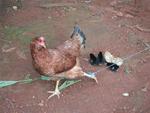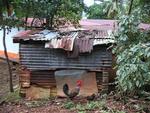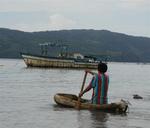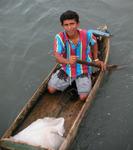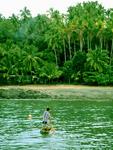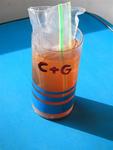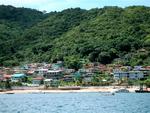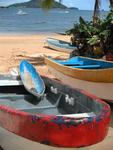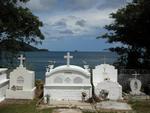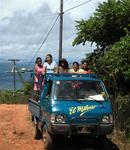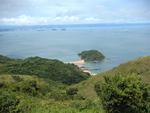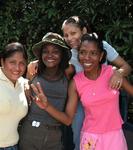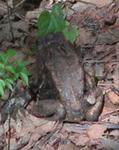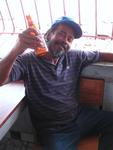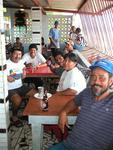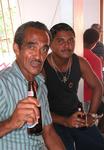
WheresCherie.COM
4300787 visitors since 07/2002
Cherie is currently in
the United States
Featured on:
Yahoo! Picks
&
USA Today
Register an account!
Registering for an account is quick, and registered
users can send messages to other users, post on message boards
rate stories, and are notified of site updates.
| poll |
| Where are you going next? |
logged users ::
active for last 5 minutes
Site created by
Raging Network Services
Logo by
Chris Barela
Click on each picture to see it full size.
read comments (0) |
write comment| views: 21080
| rated: 0.0
printer-friendly version
"If we seek security rather than the realization of our abilities, safety rather than growth, then we will be accentuating and developing our capacity for fear rather than courage, and security will, paradoxically, always remain slightly outside of our reach." -- Michael Lynberg
WheresCherie.COM Quote
93--Panama: From the Penal Colony to the Pelican Colony
@ CherieSpotting
Nov 12 2002 - 19:27 PSTcherie writes: From the Penal Colony to the Pelican Colony
On October 18th, 2002 Scirocco entered Panamanian waters. Before I arrived here I only knew two things about Panama: they had a canal, and Van Halen sang a song about them.
Panama is country number 32 for me. And it all makes sense. Exactly 500 years ago, in October 1502 Christopher Columbus began exploring these very same waters. First came Columbus, then half a century later, Cherie and Greg.
There is not just a political line of demarcation separating Costa Rica from Panama. They are very different countries. Prostitution is legal in both countries, but in many ways, that is where the similarities end. As we sailed by the shores of Panama I watched the coast transform. Jungles began to spill like waterfalls into the sea. The landscape became hot, steamy and passionate. If I was a country, I’d want Panama to be my lover.
But the same expressive thunder boomed in the distance. It said with each threatening rumble: “I’m going to drench you.” Thunder is an awful thing. It’s a warning, making you aware of the deafening storm that awaits you in the distance. The boat trembles as the thunder walks closer, shaking the boat like the footsteps of an approaching giant.
It was then that Greg checked the satellite phone, just to make sure it was working. Safety first. In case “Scirocco” started doing some acrobatics on the sea, we could call Coast Guard to come and watch us do kart-wheels.
“Cherie,” Greg called “you got another message on the satellite phone.”
“Who is it from?” I asked.
“I don’t know.” Greg shouted.
“Then how do you know it is for me?” I inquired.
“Because my friends don’t send weird messages to the sat phone.” Greg insisted.
The message we received was this:
‘Twas in the tropic latitudes,
While we were talking platitudes, as any sailor might…
We forgot to take our longitude,
Which was a very grievous wrongitude…
And made us miss the Hong Kongitude till very late that night.’
Weird. I still don’t know who wrote that message. Whoever it is, fess up! And I am crossing my fingers that it is one of Greg’s friends!
It was in the middle of this storm that we ran into another problem—bad gas. And I’m not talking about Greg’s farts. That reminds me of what Don from ‘Tamure” shouted as we left the docks of Golfito, Costa Rica. “Make sure the wind is behind you, but not of your own making!” he hollered.
The gas we bought had been mixed with water, a common problem when purchasing petrol in Central America. But, not being able to start the engine in the middle of a tropical tempest sucks. (It’s right up there with running out of ice when your refrigerator doesn’t work…but that was our next problem!)
Scirocco’s sails flapped as we continued to beat into the wet and windy storm. The sky was a spectacle, even viewed from underneath the downpour. The lightning pulsed and shattered the sky into pieces, and then left the black heaven to repair itself. With each slash of lightning the night was broken, and then unbroken, broken and then unbroken. The clouds were black and blue like bruises on a beat-up sky. The sky seemed sick. That’s when the clouds had a fit and gave us their best thrashing. The turgid waves banged us against the building seas. But I’ve learned to take storms in stride. What gets snapped will eventually be mended (with duct tape.) What gets bruised will eventually heal. What gets wet, will eventually dry. (Except my books, which have all puffed out and made me look like I’ve read three times as much as I actually have.)
My fears abated as the storm passed. I’ve picked up a new Panamanian mantra “Another day, another storm.” That’s when I saw something following us. It was swimming right next to “Scirocco”.
“Greg, look!” I exclaimed. “It’s a water-snake.”
Greg was unimpressed. “I’ve seen a bunch of those.”
“Did you want to share that news with me?” I asked sarcastically.
“I thought a snake would just worry you. See, I was right.” Greg said.
“Aren’t most water-snakes poisonous?” I asked.
“Probably. Just don’t let it bite you.” Greg advised.
“I don’t speak “snake” so I don’t know how to say: “I won’t bite you, if you don’t bite me.” Guidebooks never help with these kinds of things either. They always say things like: “This type of snake will only attack when you have entered its territory.” Leaving one to wonder, do the snakes post signs?
From that moment, my snorkeling hasn’t been quite as carefree as it used to be. I’ve put myself on permanent “snake watch.” I wasn’t ready to change my mantra to “Another day, another snake.”
After over 28 hours of sailing, we were ready for a swim. Our first stop in Panama was the brilliant waters of “Isla Canal de Afuera.” The tropical paradise is part of a Panamanian national park that also hosts a penal colony. Infested with water-snakes and criminals, it was my type of island. It was screaming “adventure!” We decided to take the risk of exploring it, because the island was also loaded with palm tress, colorful shells, and water as clear and innocent as an infant’s eyes. “The Panama Guide” suggested we use care when visiting this particular island. The authors of the guidebook admonished that they had seen escaped prisoners on that island.
So when I saw four raggedy looking Panamanian guys in a fishing boat motoring over to us while we were laying on the beach, I was a little scared.
“What do you think they want?” Greg asked.
“To kill us and steal “Scirocco” to flee the country.” I answered.
But there was no cause for worry, they only wanted money! Thirty dollars to visit the island (because it was a national park) was a little steep for our budget, so we headed out to explore other tropical islands--one’s that didn’t have a surcharge for snake-sightings.
Safe from prisoners, storms and excessive national park fees, we landed on Isla Goberadora. When I say landed, I mean landed. Greg didn’t read the chart that would have advised us that the tide fluctuates 20 feet in this section of Panama. In hindsight, dropping the anchor was silly. Thirty minutes later, we weren’t going anywhere. We were grounded.
We took this opportunity to paddle ashore and explore the island. The village was primitive, raw and honest. The native people were very native looking, like a tribe National Geographic should write an article about. We wandered around the island exploring the simple fishing huts and looking for various supplies that we needed. The only thing we could find on our list was bread. (Can you believe they didn’t have pancake mix and Diet Coke?) We walked into the “store” which was like a closet within a shack. (There were three “stores” on the island and going inside each of them was like shopping out of someone else’s musty pantry. It was dark inside, so I asked the woman if she could turn on a light. I couldn’t even see her face because it was so dark. But I could see her teeth; she was laughing. The town didn’t have electricity.
Greg and I let our eyes adjust to the absence of light and we still couldn’t see what the store offered. So we bought some baked-goods, and as a bonus, she also included some mold with our bread (which we didn’t know about until we got back to the boat.)
“That’s okay! There is plenty of mold on the boat to keep it company!” I exclaimed. Greg doesn’t understand why I don’t like mold. He thinks if I like “blue cheese salad dressing” then I should like all types of mold. Just because I eat certain well-aged cheeses doesn’t mean I want to scrape off whatever is growing in the shower and munch on it!
No one on the island had ice, but we found a little fishing boat whose owner was happy to share his fishing-ice with us. He paddled out to his boat in a hand-dug canoe and loaded a sack of ice for us. Then he delivered the hunks of ice to “Scirocco” and wouldn’t accept any money for it. We insisted, and he finally took the “Balboas.” Ironically, Panama uses the very same dollar that the United States uses, except they have renamed it “Balboa.” (Greg was a little dismayed at this because he had grown accustomed to seeing his bank account balance in Costa Rican “colones” which made him 370 times richer.)
All paid up and explored out, we should have sailed away. We couldn’t. “Scirocco” was still beached. The people were incredibly nice, but I’m sure they were shaking their heads at us like we were fools. Silly white people stuck on the beach again. Regardless, my memories of this traditional island will remain unblemished even though we came away with moldy bread and stinky fish-ice.
With the rising tide, our journey continued.
The next morning Greg woke up to Cherie-the-Grouch.
“We’ve been in Central America for over a month and the dinghy motor still doesn’t work, we don’t have a refrigerator, the cushions are gross…blah blah blah.” I complained. It is hard to keep things in good condition on a boat. Like my attitude, for example.
“Did someone wake up on the wrong side of the moldy pillow?” Greg asked.
“Yes!” I said. I was ready to be on flat land. And after sailing for over five days from Costa Rica, we were finally within 200 meters of the Balboa Yacht Club, near the entrance to the Panama Canal. It was a post-card view. When the “Bridge across Americas” came into view, I wished we could hold still a moment so I could capture the image on film. My wish came true.
We were two football-fields away from hamburgers, french-fries and a cold drink when “Scirocco” ran aground again. I also wasn’t specific about what type of “bar” I was wishing to be at (one that served beers)—so I was given a sandbar. While being in a typical bar helps to chill me out, being in a sandbar only enrages Greg. It was like running a marathon and then getting stuck in quick sand a few steps from the finish line. After our efforts to free ourselves failed, so a local boater came out to help. Then a second boat came out to help. Finally, under the push and pull of three diesel engines, “Scirocco” was set free. I told Greg that there were easier ways to clean the bottom of boat than scraping her against the coarse ocean floor. Sometimes Greg doesn’t think I am as funny as I do.
Later we sailed out to the island of Taboga where we were we going to take a hike to the island’s highest point. After about ten minutes of “hiking” a group of Panamanian women asked us if we wanted a ride in the back of their truck. The women of Panama wear clothes that are two sizes too small, and the trucks of Panama drive on roads that are two sizes too small. This wasn’t a truck you sit in, you had to stand up and play “duck and cover” when the branches whacked you as we drove by. We held on as the truck pitched and heaved us into the surrounding foliage. But I was looking for one thing…frogs.
Our guidebook said there were frogs on this trail and I was bound to find one. That’s how many I found: one. But instead of laden with stripes, dots or wild colors (like all the pictures in the guidebook) the frog was a disappointing muddy brown. Or maybe he was just dirty. But I didn’t know the word for frog in Spanish. So I just screamed until the truck driver stopped. Then I did an incredibly accurate imitation of a frog jumping. The girls in the back of the truck squealed with glee commanded the driver to reverse so they could see the amphibian for themselves.
Sure enough, there was a fat frog just sitting there in the mud. It did nothing as we watched it, it didn’t even croak out a “ribbit”. One of the drivers told me to stay away since it was a poisonous frog and that made the frog just that much more interesting. I mean, it was a frog. What was it going to do, jump on me and suck the blood out of my neck? I save my fear for really scary stuff like vampire bats and deadly snakes, which are both common in Panama.
At the island’s peak we saw that Scirocco was the only boat in the anchorage. We could also see the sky-scrapers of Panama City towering over the coast eight miles away.
Taboga was a charming, colorful island filled with laughter, gardens, beaches, free rides to the top, and cheap beer. The island is so small that everyone has ocean front property; even the cemetery overlooks the sea. A large portion of the island is a Brown Pelican Reserve. But the island is definitely not for the birds! We loved it.
We ended the day with a swim and a meal at the local restaurant. Greg said “Let’s go there.” The tin-roofed hut he pointed to was loaded with drunk native fishermen. “You told me that when traveling, you should always find a restaurant packed with locals and order whatever they are eating.”
“I said that?” I asked.
“Yes you did.” Greg replied.
“Well I’ve been traveling a long time, so we should take my advice!” I shouted.
That’s what we did. Greg and I made quite a scene at this restaurant simply by being pale tourists and looking out-of-place. The owner came up and introduced himself and I thought he was in a pretty good mood for someone with no teeth. Then another guy who looked like he just swam in from the local penal colony bought us some beers. The guy probably spent half a day’s wages to buy us drinks. Greg and I had a hamburger, fries, chicken, rice and five beers for a total cost of five bucks. We bought a couple rounds too. It is easy to be generous when cold bottled beers are 60 cents each! That afternoon was one I’ll never forget. We were buddies with half the town in only a few hours. As we sailed off into the sunset, I couldn’t help but thinking about what a charmed life we lead.
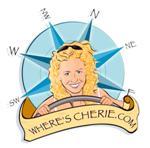 |
 RSS Feed
RSS Feed